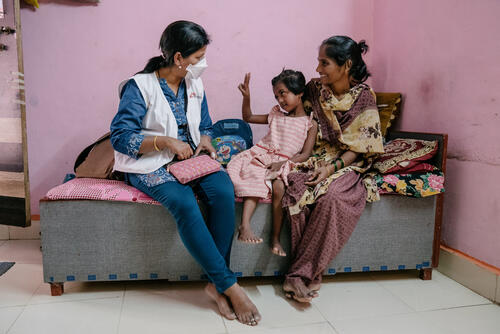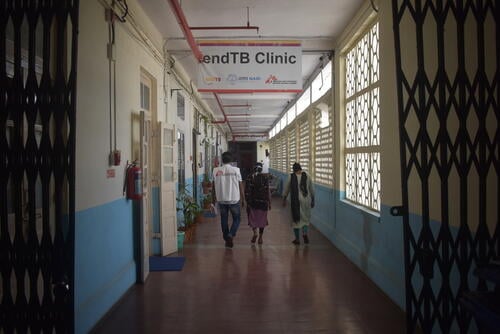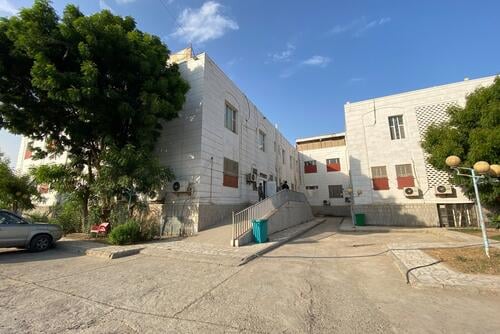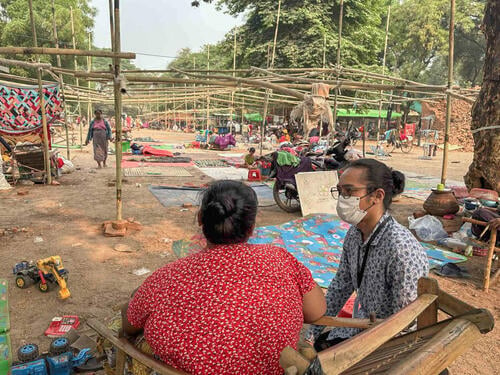Médecins Sans Frontières (MSF) will close our drug-resistant tuberculosis (DR-TB) project in Mumbai, India by the end of 2024. This significant initiative has been providing comprehensive care to patients with complex cases of extensively drug-resistant TB (XDR-TB) since 2006. The project, which has played a pivotal role in treating patients who had no other treatment options, will be handed over to India’s National TB Elimination Program (NTEP) and the Brihanmumbai Municipal Corporation (BMC), ensuring that the fight against TB in the region continues with sustainable support.
In 2016, MSF partnered with NTEP to co-manage the DR-TB centre at Shatabdi hospital, located in one of Mumbai’s high-burden areas, the M-East ward. This partnership has been instrumental in improving diagnosis, patient care, and treatment success rates. Since the beginning of the collaboration, 7,431 DR-TB patients have been enrolled, and treatment success rates have increased significantly from 62 percent to 80 percent today. MSF’s contribution was key in pushing for and adopting newer diagnostic tools, individualised treatment plans, and patient-centric care, which was a major factor behind the success of this model. The work done at the Shatabdi hospital was further supported by MSF’s community-level activities, which focused on raising awareness about TB and providing decentralised follow-up care for patients.
While we are concluding our direct involvement in this project, we leave behind a strengthened health system equipped to carry forward the innovations we helped introduceDr Satish Devkota, Medical Coordinator for MSF
Since its inception in 2006, MSF’s independent clinic in Mumbai played a critical role in treating the most complex cases of DR-TB, providing care that was not available under the national protocols. The clinic enrolled a total of 828 patients, including 201 children and adolescents, many of whom were referred after failing previous DR-TB treatment regimens. MSF’s pioneering approach included the use of salvage regimens with newer drugs such as bedaquiline and delamanid, especially for younger patients who had few alternatives due to the toxicity, prolonged treatment durations, and poor tolerability of older drug regimens. These older treatments often led to severe side effects and lower success rates. The clinic has been at the forefront of advancing DR-TB treatment, providing not only medical care but also psychosocial support and palliative care services.
“Our project in Mumbai has demonstrated the power of collaboration and innovation in TB treatment,” explains Imtiaz Wadud, the Head of Operations for MSF in India. “By regularly introducing evidence-based advancements in TB care, this project has always strengthened DR-TB care while improving patient outcomes.”
The knowledge and evidence generated through the project in Mumbai have had a global impact as well. MSF’s data contributed to the World Health Organization’s 2020 guidelines on DR-TB treatment, allowing the use of new drugs like bedaquiline and delamanid together. These drugs, once available only through MSF, are now part of India’s national treatment program, which means patients will continue to have access to lifesaving medication even after our clinic closes.
“While we are concluding our direct involvement in this project, we leave behind a strengthened health system equipped to carry forward the innovations we helped introduce,” says Dr Satish Devkota, Medical Coordinator for MSF. “The patients are now part of a system that will continue to evolve and provide them with the care they need.”

MSF will continue to advocate for improved access to TB treatments, especially for children, and for shorter, all-oral regimens that are critical for patients with limited treatment options.
Our focus remains on building a sustainable future for TB care in the region. Through knowledge transfer and capacity building, we are ensuring that local groups and organisations have the tools needed to manage and sustain TB programmes. MSF will continue engaging with local organisations, healthcare workers, and TB survivors to ensure that the progress on DR-TB is not lost.
MSF remains committed to supporting NTEP and other stakeholders in addressing the ongoing gaps in TB care. Our presence in the global fight against TB will remain strong, as we continue to work towards innovative solutions for the millions affected by this preventable and curable disease.






